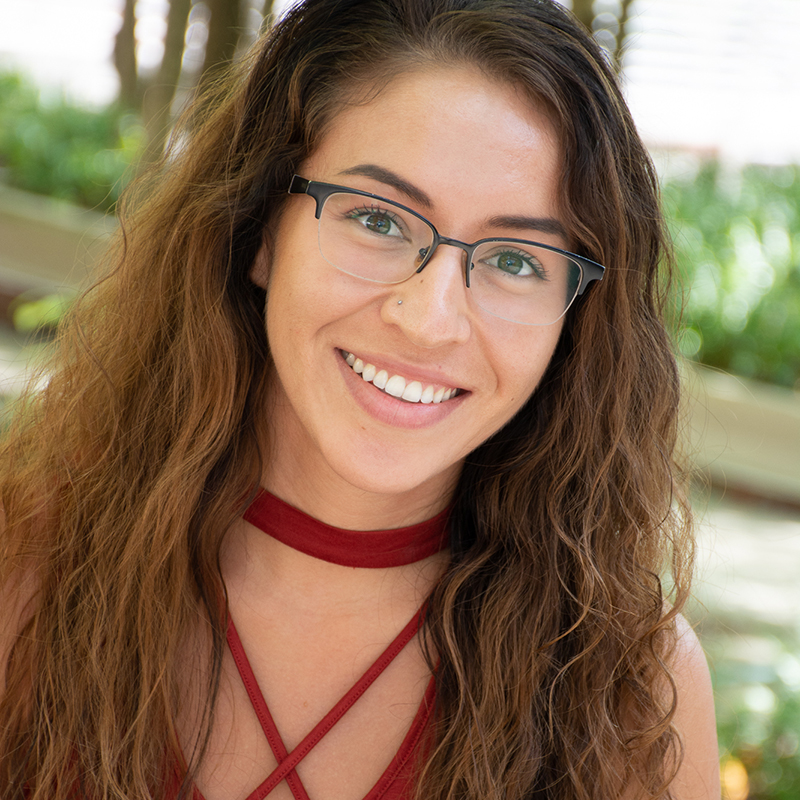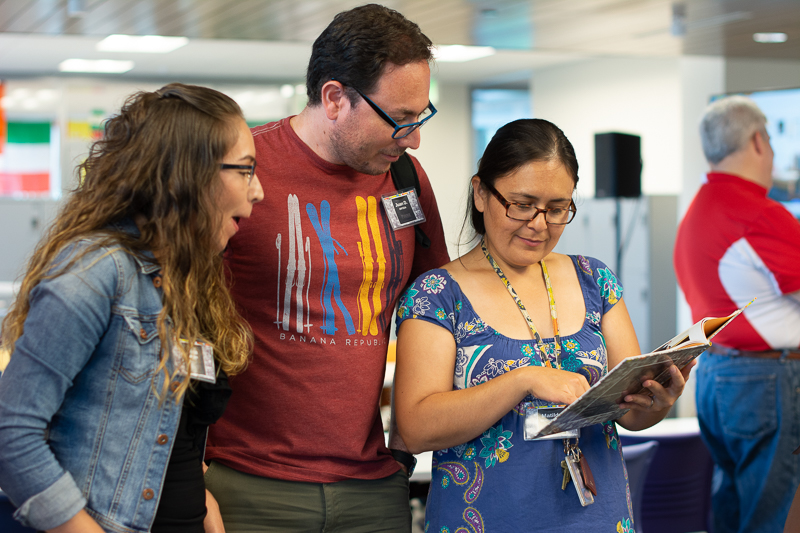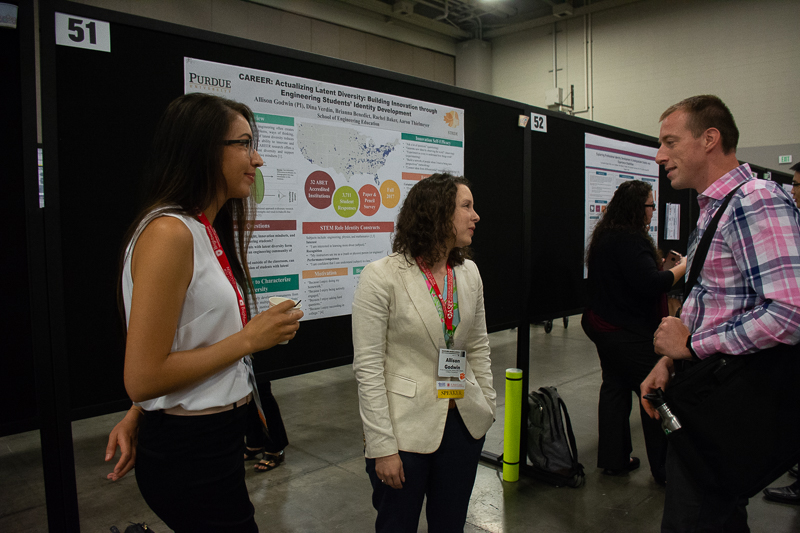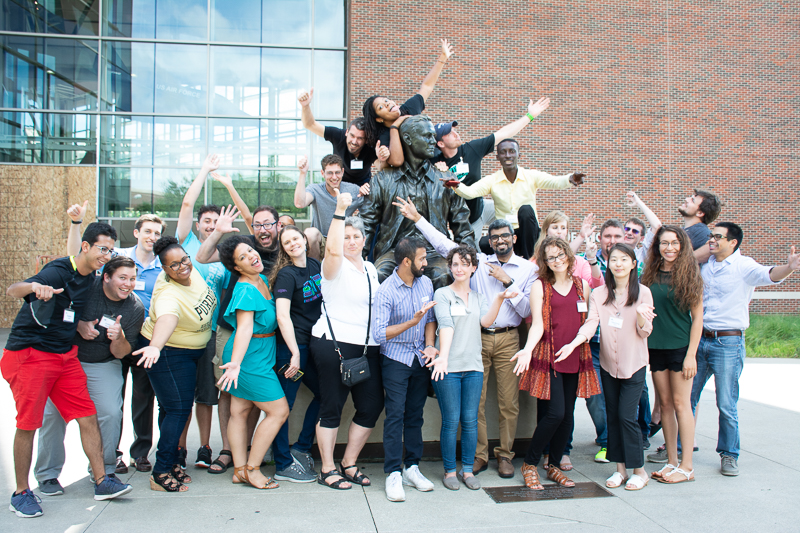Dr. Dina Verdin
 Dina Verdín
Dina Verdín
Dissertation Defense: February 24, 2020
Committee: Dr. Allison Godwin, Dr. Matt Ohland, Dr. Alice Pawley, and Dr. Jessica Smith
Enacting Agency: Understanding How First-Generation College Students’ Personal Agency Supports Disciplinary Role Identities and Engineering Agency Beliefs
Educating engineers should be for the benefit of students and their aspirations, whether that is helping their communities and/or environment, achieving financial stability, or achieving the goal of earning a degree in a lucrative field. Obtaining an engineering degree positions students as capable agents for societal change, which are not limited to solving global concerns, societal issues, or personal problems. This work examines how students who are the first in their families to attend college come to see themselves was agentic engineering participants so that their experiences can inform engineering educators of the strategies of perseverance they enact. Specifically, the three studies presented use an asset-based perspective to understand how first-generation college students’ through their agentic capabilities are enabled to participate in engineering.
Study 1 develops a measurement scale to capture first-generation college students’ agency using the constructs of intentionality, forethought, self-reactiveness, and self-reflectiveness. Strong validity evidence for the second-order latent construct of personal agency was established through exploratory and confirmatory factor analysis.
Study 2 used structural equation modeling to establish a relationship between personal agency, disciplinary role identities, and students’ desire to enact engineering agency. First-generation college students’ personal agency had the greatest effect on their perception of enacting purposeful and meaningful change (i.e., engineering agency). Additionally, personal agency had the strongest effect on first-generation college students’ engineering identity when compared to mathematics identity and physics identity.
Lastly, Study 3 was a narrative analysis of how Kitatoi, a Latina, first-generation college student, authored her identity as an engineer. The process of authoring an identity happens over daily encounters and struggles and taking into consideration students’ backgrounds is important for understanding how disciplinary role identities develop. Kitatoi’s pathway while in community college allowed her to develop an identity in the context of mathematics and physics, and once in Research State University, through her agency, she came to see herself as a capable engineering learner. Personal agency allows educators to acknowledge that students are authors of their actions, and their actions, when targeted in the context of engineering, have engineering identity-forming outcomes.
These studies create an asset-based body of work on first-generation college students and build theory about how this group of students through the enactment of their personal agency develop an engineering identity and use engineering as a tool to make a difference in the world.
Memories with Dina

September 2016: Dina with Juan (ENE PhD '19) and Matilde (ENE PhD '18) at Wang Hall participating in Dr. Radcliffe's book release party.

June 2018: Dina with Dr. Godwin and Andrew from Purdue EPICS at the 2018 ASEE Annual Conference

August 2017: Dina, far right, posing with the 2017 cohort of graduate students at the iconic Neil Armstrong statue.
